Interestingly, your warm fibers have a secondary peak in sensitivity when they are exposed to very low temperatures. This is also known as a paradoxical heat experience because it is brought about by contact with extremely cold temperatures. The temperatures are so low that they also induce pain responses. Nonetheless, some of you may have experienced this during minor medical treatment. If you have ever had a skin abnormality, such as a wart, treated with liquid nitrogen, you know the experience of paradoxical heat. Liquid nitrogen is kept at about –200°C (–328°F). When it is applied to our skin, however, we feel pain and heat, not coldness, because of this secondary peak for the warm fibers. Some Antarctic explorers have also described feeling paradoxical heat when being buffeted by 160 km/h winds in –60°C cold.
The intensity of this sensation results from the simultaneous activity of both cold and warm receptors. In this demonstration, we will use both cold and warm stimuli and simultaneously activate the warm and cold receptors and take advantage of the fact that we are very poor at localizing our temperature sensations so they will be integrated in the brain.
What you will need:
• Two (2) Pipe Cleaners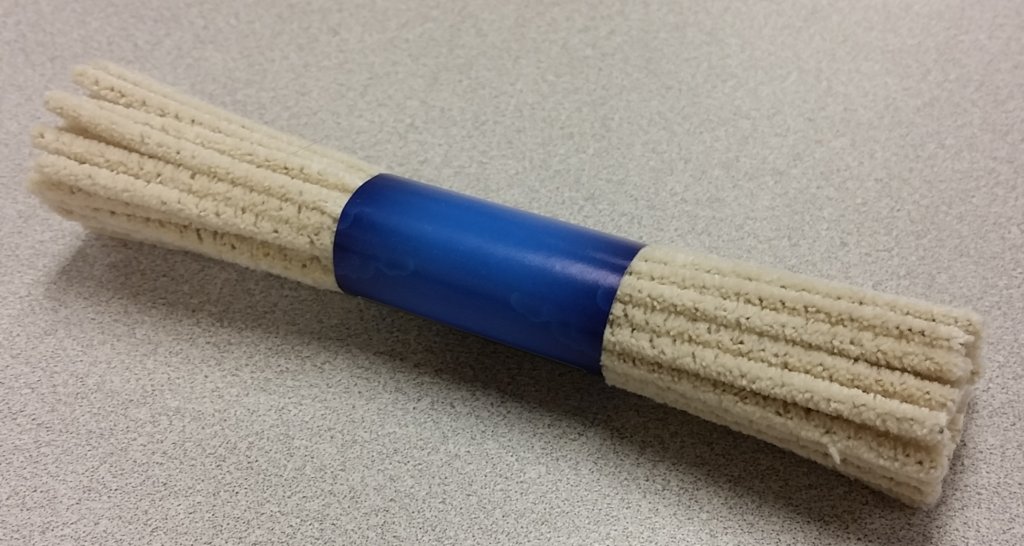
• Pans or glasses to hold water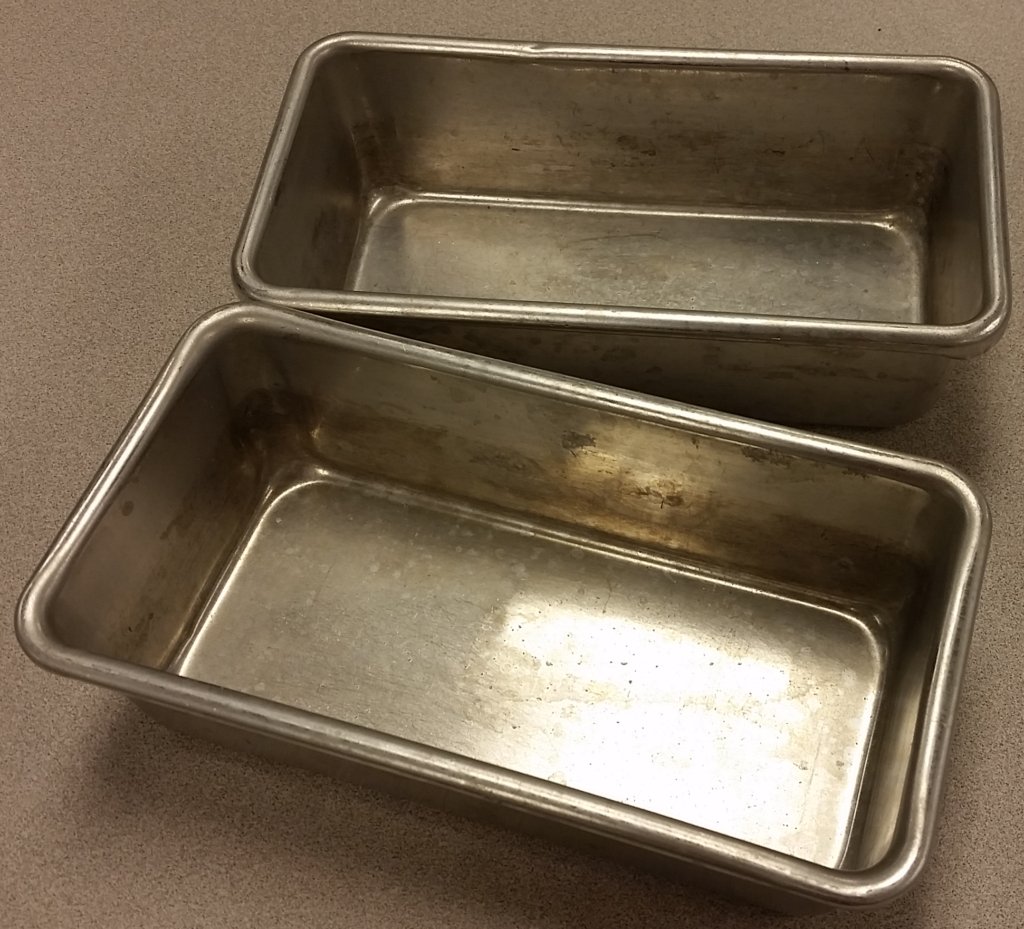
• Optional but nice:
• Thermometer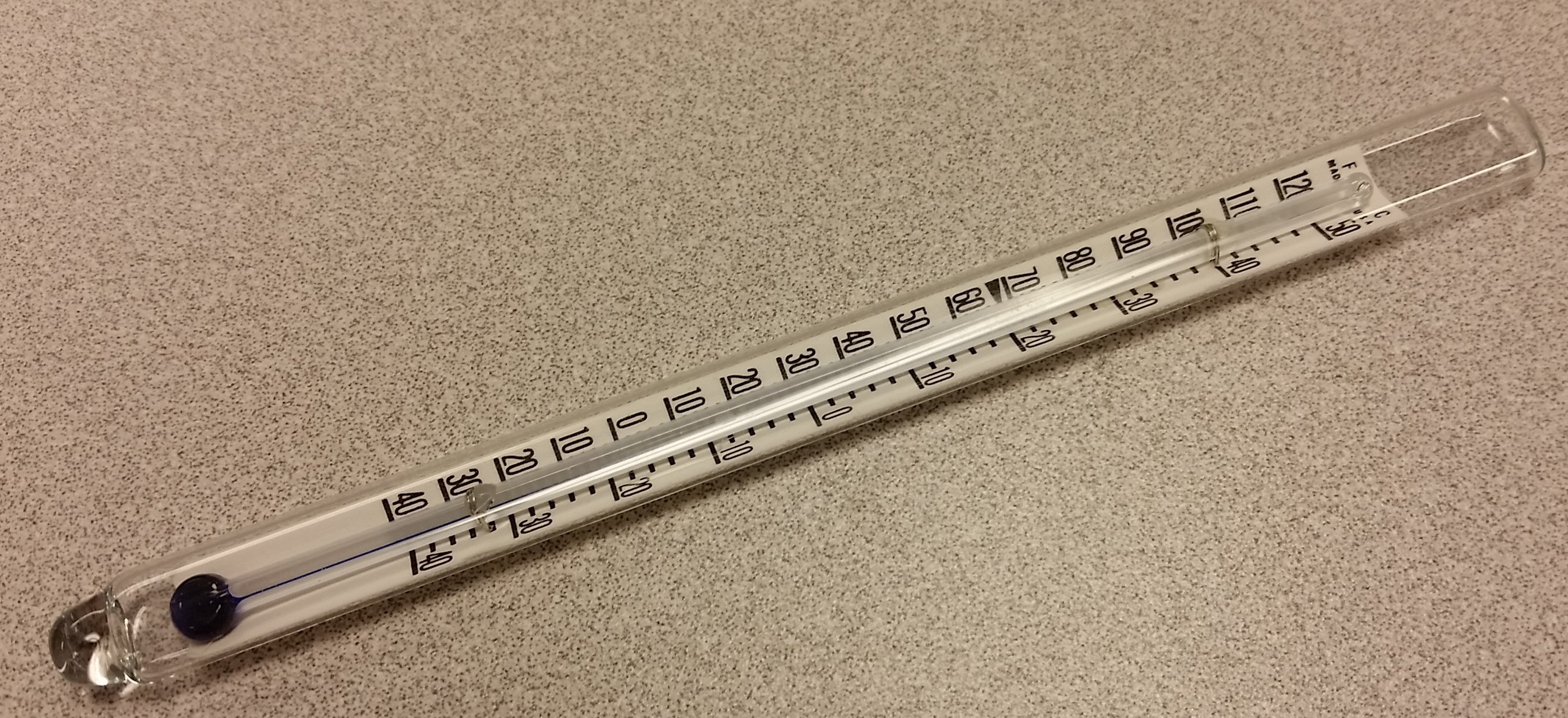
• Heating element, like
this imersion heater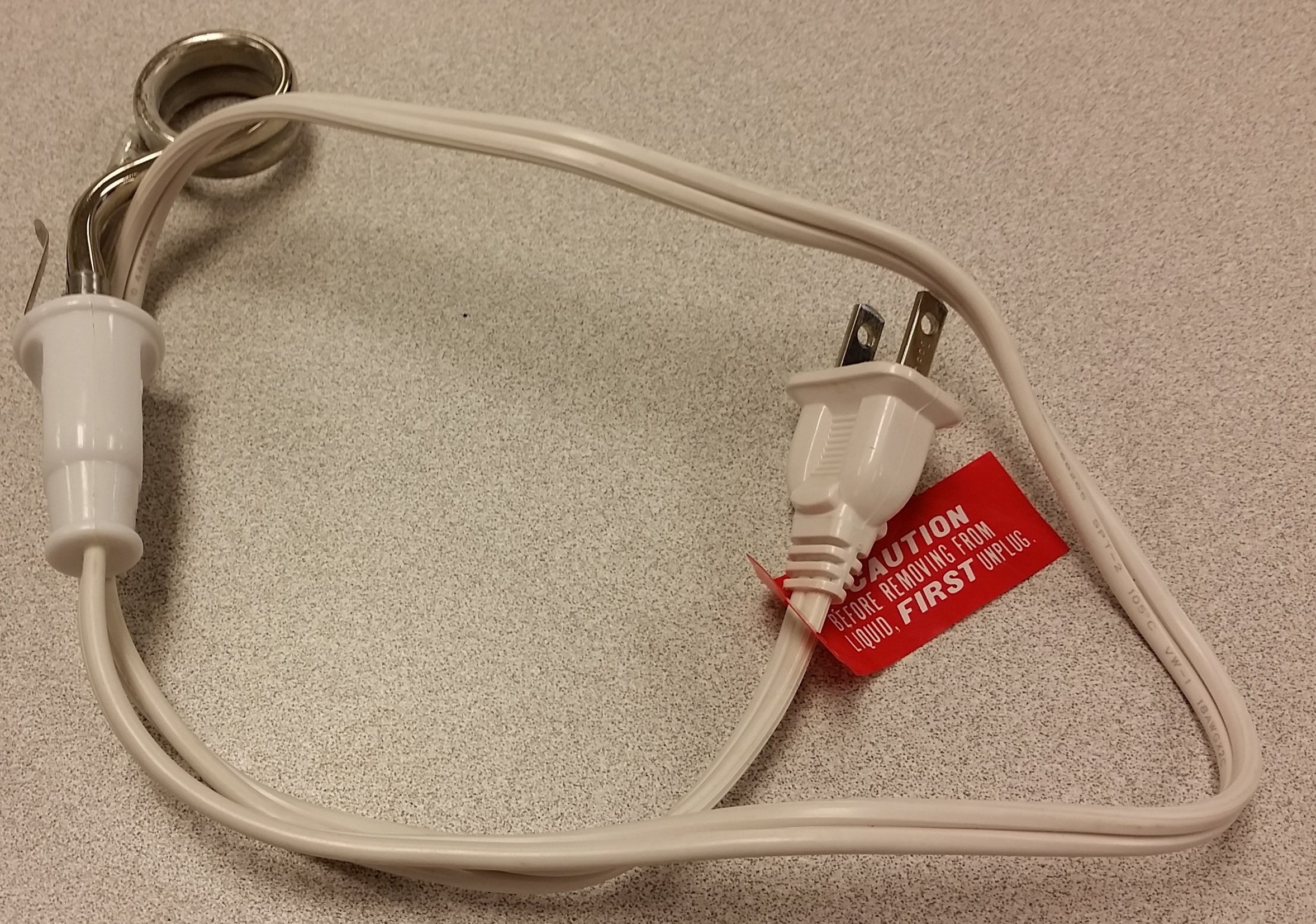
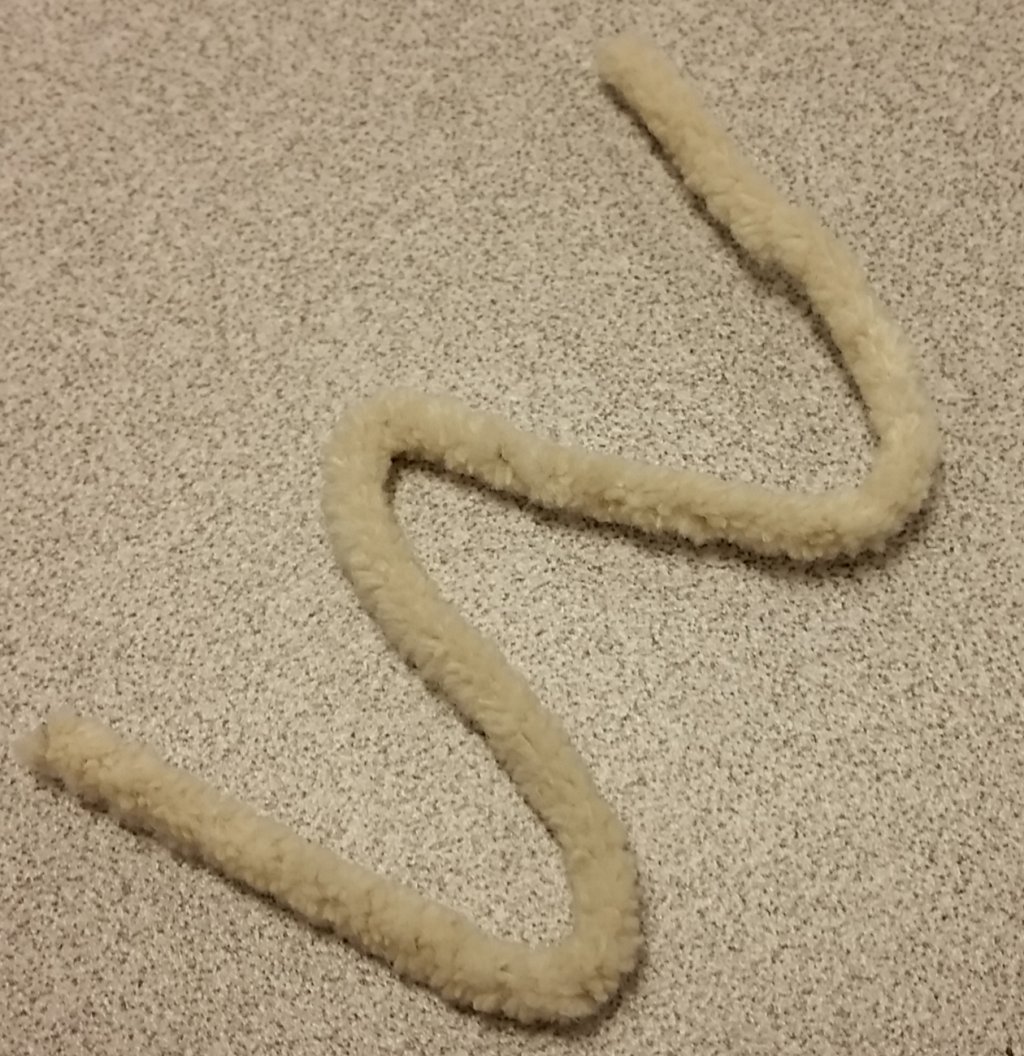
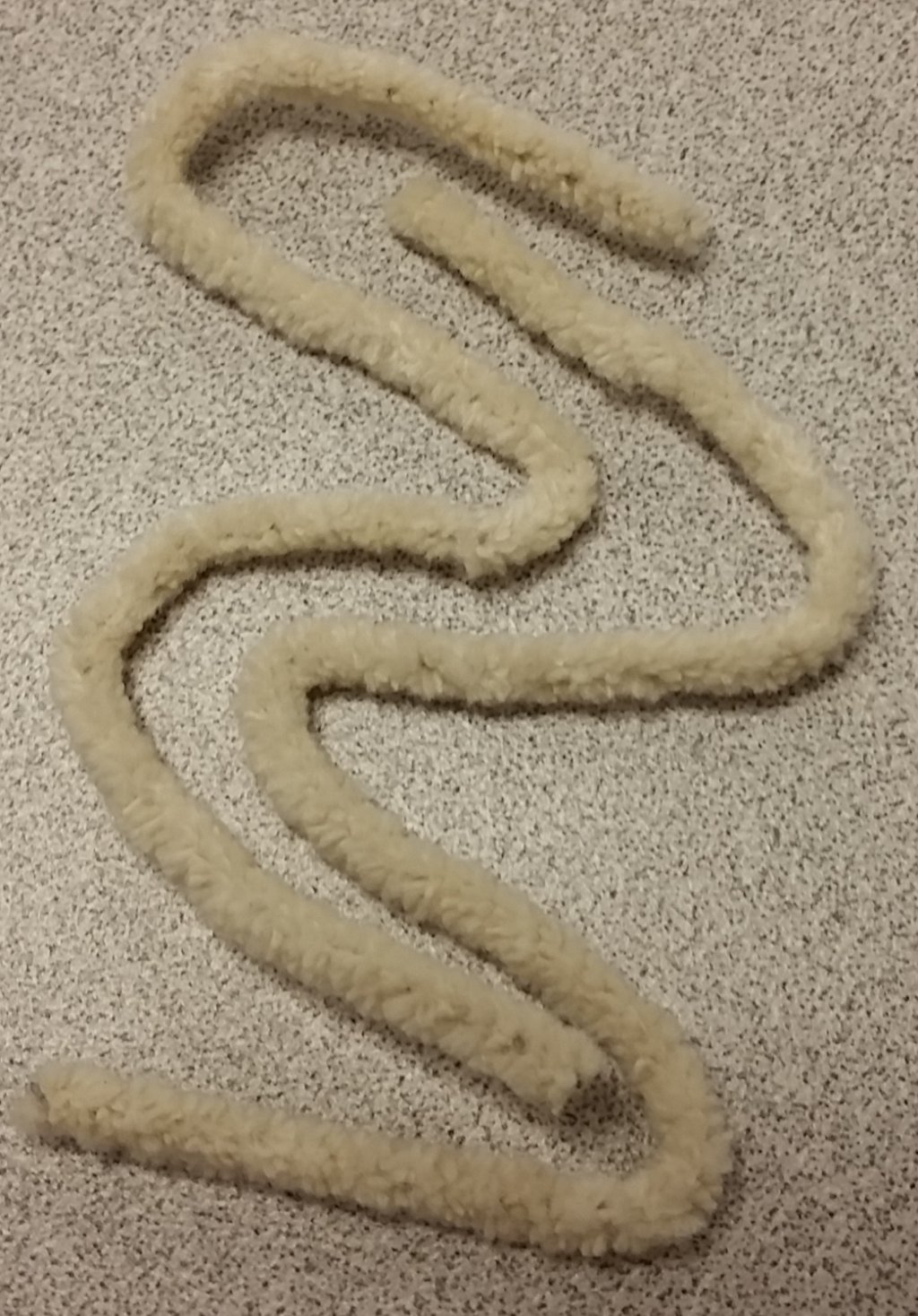 For this demonstration, you will need at least the two pipe
cleaners and something to put water in. First bend the pipe
clears as shown in the image to the left. Bend the two cleaners
so that they fit together closely as shown in the figure to the
right. Make sure they are flat as well. Next you need to prepare
two different temperature water baths. For the cold water, get a
cold glass of water. Water from a water fountain is ok, or you
can put some ice into the glass or pan. If you have a
thermometer, get the water to about 55-65 degrees F. For the
warm water, get the water pleasantly warm but not too hot. Hot
water out of the tap is fine or you can use your heating
element. If you have a thermometer, you want the water to be
between 110-120 degrees F. After your water containers are to
the proper temperatures put one of the two pipe cleaners into
each of the two glasses or pans.
For this demonstration, you will need at least the two pipe
cleaners and something to put water in. First bend the pipe
clears as shown in the image to the left. Bend the two cleaners
so that they fit together closely as shown in the figure to the
right. Make sure they are flat as well. Next you need to prepare
two different temperature water baths. For the cold water, get a
cold glass of water. Water from a water fountain is ok, or you
can put some ice into the glass or pan. If you have a
thermometer, get the water to about 55-65 degrees F. For the
warm water, get the water pleasantly warm but not too hot. Hot
water out of the tap is fine or you can use your heating
element. If you have a thermometer, you want the water to be
between 110-120 degrees F. After your water containers are to
the proper temperatures put one of the two pipe cleaners into
each of the two glasses or pans.
First test the different pipe cleaners
separately.
. Pull the pipe cleaner from the cold water glass or pan. Lay it
flat as shown in the image above to the left and place one of
your forearms across the pipe cleaner. Notice how it feels and
put it back into the cold water glass or pan. Give yourself a
brief break for your arm to return to room temperature. Then
repeat the process for the pipe cleaner in the warm water.
Now, try the combined pipe cleaners.
. After a brief period of time to let your arm return to room
temperature, pull out both pipe cleaners and set them
intertwined like in the image above to the right. Then place
your forearm across the pipe cleaners as shown below and notice
the sensation.
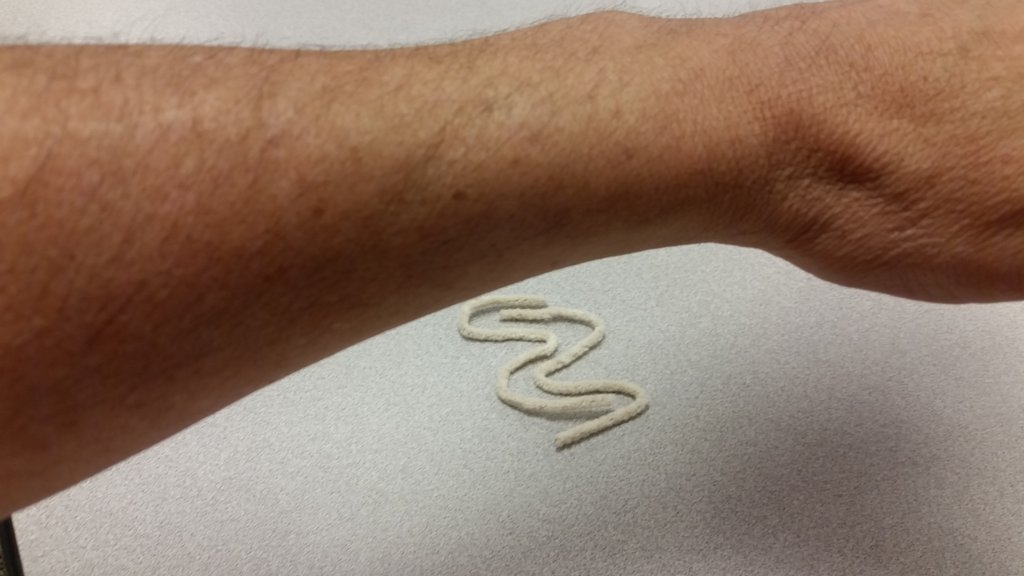
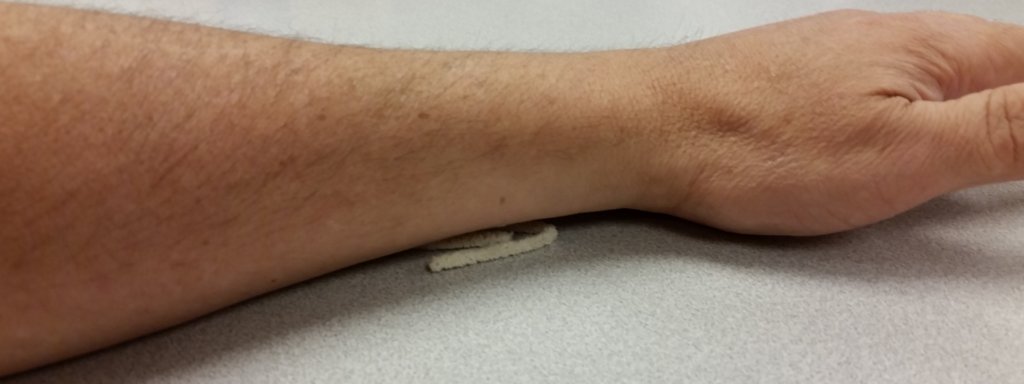
This demonstration is adapted from Coren, S., Ward, L. M., and Enns, J. T. (1994). Sensation and Perception, 4th ed. New York: Harcourt Brace.